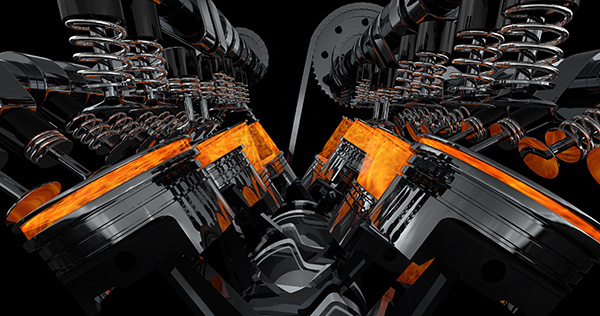
Do you hear that unsettling knocking sound coming from your engine? Engine knocking can be a sign that something’s off, and addressing it quickly can save you from bigger problems in the future. But what exactly causes engine knocking? Let’s explore some common reasons behind this issue and why you should not ignore it.
What Is Engine Knocking?
Engine knocking, also known as “pinging” or “detonation,” happens when the fuel in your engine’s cylinders ignites unevenly or at the wrong time. Ideally, fuel should ignite in a controlled combustion process, but when things go wrong, the fuel-air mixture detonates prematurely, leading to that knocking sound. Over time, this can cause significant damage to your engine if left unaddressed.
Now that you know what it is, let’s look at what might be causing your engine to knock.
1. Low-Quality Fuel
One of the most common causes of engine knocking is using fuel with a lower octane rating than what’s recommended for your car. Higher-performance engines often require high-octane fuel to prevent knocking. If you use regular fuel in an engine that requires premium, the fuel can ignite too early under high pressure, causing the knocking sound.
Always check your vehicle’s manual to see which fuel is recommended. Stick to the octane rating that your engine needs to keep it running properly.
2. Carbon Build-Up in the Combustion Chamber
Over time, carbon deposits can accumulate in your engine’s combustion chamber. This build-up can lead to a reduction in the volume of the chamber, increasing pressure inside it. Higher pressure can cause the fuel to ignite too early, resulting in knocking. Carbon deposits are often the result of poor fuel quality or irregular maintenance.
Regular engine cleaning or using fuel additives that reduce carbon deposits can help prevent this issue. Also, keeping up with routine maintenance helps reduce the risk of carbon build-up.
3. Incorrect Air-Fuel Mixture
The air-to-fuel ratio inside your engine needs to be perfectly balanced for efficient combustion. If there’s too much air or too little fuel, your engine will run "lean," which can cause knocking. A lean mixture can overheat the engine, leading to detonation in the combustion chamber. This issue often occurs when there are problems with the fuel injectors, oxygen sensors, or mass airflow sensor.
If you suspect that your air-fuel mixture is off, have your car inspected by a professional. Addressing faulty sensors or injectors can restore the correct balance and stop the knocking.
4. Faulty Spark Plugs
Worn or damaged spark plugs can misfire, which affects the timing of your engine’s combustion. If the spark doesn’t ignite the fuel-air mixture at the right moment, knocking can occur. Similarly, spark plugs that aren’t gapped correctly can lead to detonation issues.
Regularly replacing your spark plugs according to the manufacturer's recommendations can prevent misfires and engine knocking. Always ensure the spark plugs are properly gapped when installed.
5. Timing Issues
Your engine relies on precise timing to ensure that the combustion process occurs at exactly the right moment. If the ignition timing is too advanced, meaning the spark plug ignites the fuel-air mixture too early, this can cause knocking. Timing issues may arise from a faulty timing belt or problems with the engine’s computer.
If you suspect timing issues, it’s important to get your vehicle checked by a qualified technician. Correcting the ignition timing is key to preventing engine knocking and ensuring optimal performance.
Don’t ignore the engine knocking! Bring your vehicle to Willy’s Transmission & Air Conditioning for a fast and accurate diagnosis. Our skilled technicians can prevent further damage and help keep your car running at its best.